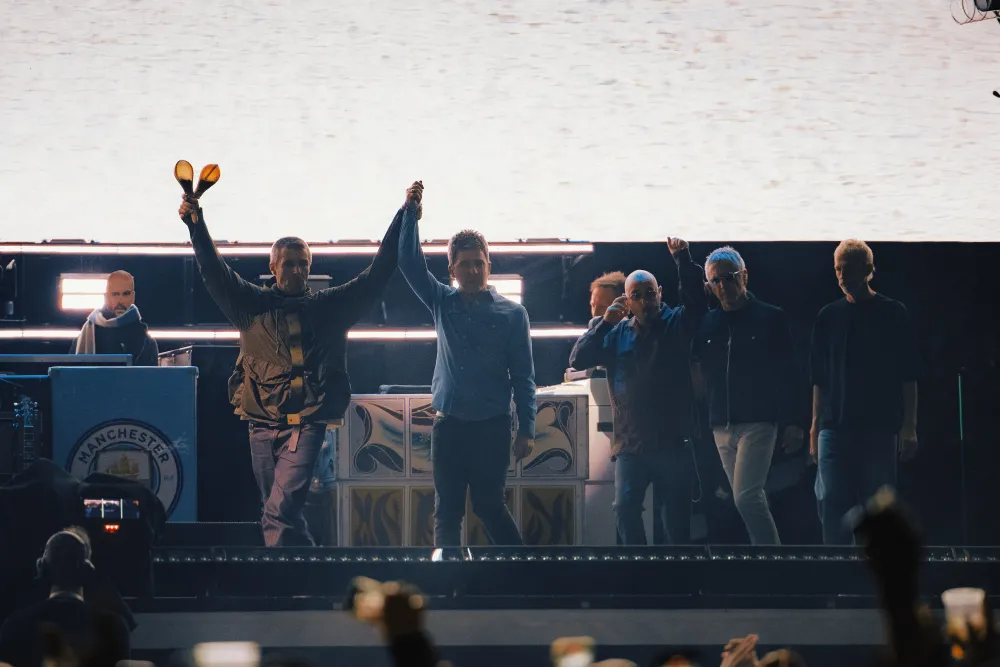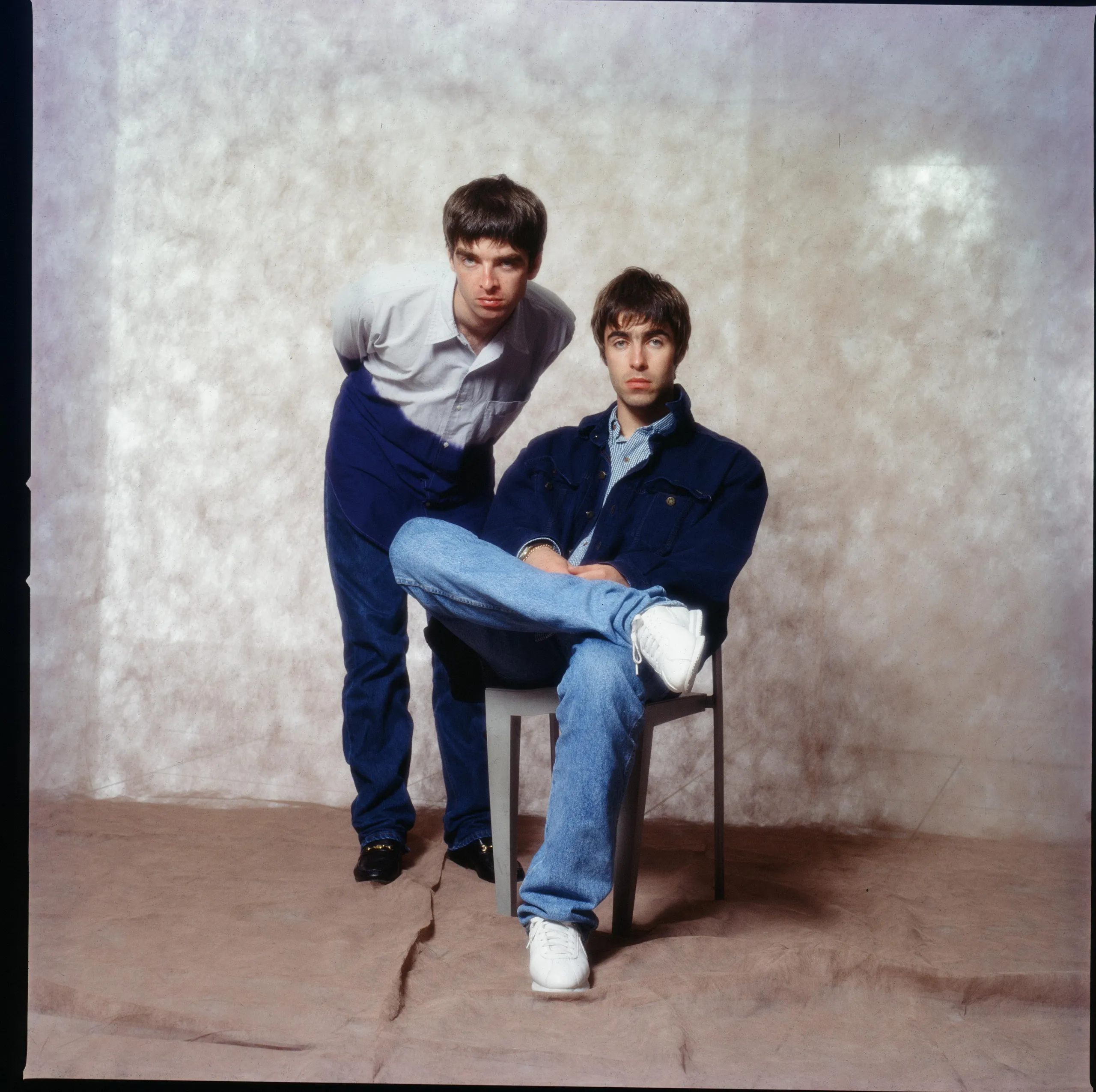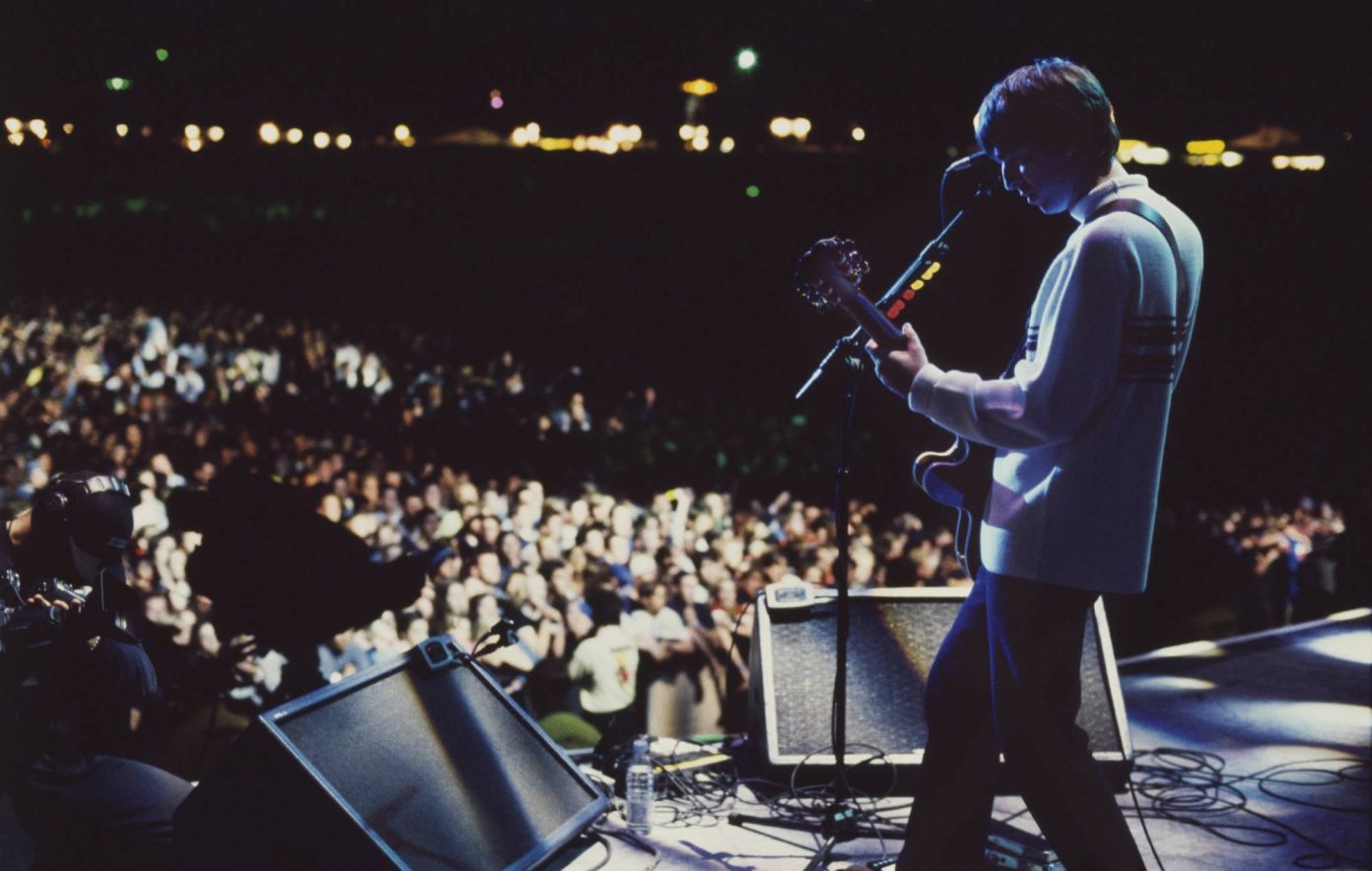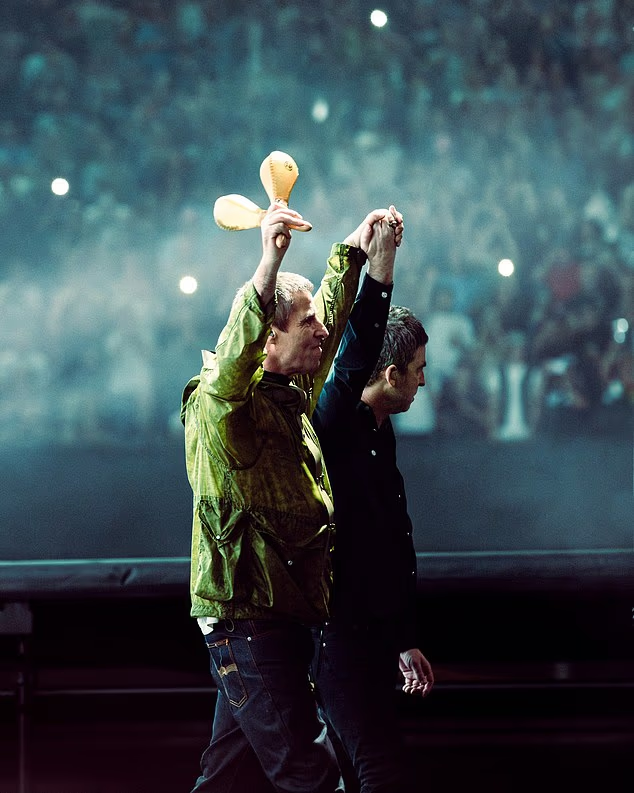Why They Still Matter

August 28th 2009. I was nine years old, I reckon if you'd have asked me what an Oasis was, I might have given you the answer, an area of a desert where there is water. I'd have probably also known that it was a soft drink. I definitely wouldn't have known a band named Oasis had just come to an end in Paris.
My time with the band would come around five years later. Aged fourteen. I'd always been a keen music fan, forever interested in my dads record collection and by that time I'd been to a couple of gigs. Into my teenage years though I went hunting, and pretty quickly found The Stone Roses first album, having heard 'Waterfall' somewhere, from there the jump to Oasis was a pretty small one.
Of course I'd heard the so called big three. 'Wonderwall', 'Don't Look Back in Anger' and 'Champagne Supernova' are part of the fabric of life in Britain. Played at weddings, parties, funerals, football stadiums, pubs, nightclubs, indie nights, school discos.
Those songs are everywhere, but then you start digging. 'Supersonic', 'Live Forever', 'Cigarettes & Alcohol' blew the teenage me away, they still sound massive and as a teenager it was unlike anything I'd ever heard before. Then you delve into the debut album. 'Bring it On Down' sounds dangerous, 'Slide Away' is one of the most beautiful songs ever written.
The album is full of catchy choruses, wit, and a whole lot of attitude.Those songs resonated with the fourteen year old me, twenty years after it's release and I know I wasn't the only one. My friends, well some of them found Oasis at the same time as me.

Around this time I also started collecting records, and 'Definitely Maybe' was one of the first I bought. 'What's the Story Morning Glory' followed soon after. The album with the hits, the big three but also with their first UK Number One, 'Some Might Say', the song that lost the Battle of Britpop, 'Roll With It', and the song that advocates cocaine use 'Morning Glory'.
There was no other band making songs like that at the time, and there hasn't been another since. Once I had the albums, I delved into the story. How it all started, the night at King Tuts, the shows at Maine Road, and of course, Knebworth. The whole thing is fascinating. Oasis went from nobodies to the biggest band in the country in what felt like the blink of an eye. That night at King Tuts in Glasgow in 1993 changed everything one chance gig that got them signed on the spot by Alan McGee. From there, it was a whirlwind. 'Definitely Maybe' came out in 1994 and exploded, becoming the fastest-selling debut album in UK history at the time. The follow-up, 'What's the Story Morning Glory?', turned them into a global phenomenon, with songs like 'Wonderwall' and 'Don't Look Back in Anger' becoming generational anthems.
The Maine Road shows in 1996 were a homecoming the moment they truly belonged to Manchester and just months later, they would play to a quarter of a million people over two nights at Knebworth, a peak that few bands have ever reached. No support slots, no compromises it was all about them. What makes it even more captivating is the chaos that ran alongside the success the fights, the headlines, the sibling rivalry that both fuelled and fractured the band. Their story is like a modern-day rock 'n' roll fable: fast, messy, brilliant, and ultimately unsustainable. That’s why people still talk about it. It wasn’t just a band, it was a moment in time, and once you get pulled into their story, it’s almost impossible to let go.
'Supersonic', the documentary, came out in 2016 and it made me fall in love with the band even more. Fans like me, who were children when they broke up, got to see five lads from Manchester become the biggest band in the world and got to hear from the two brothers, and those who were there, just how they did it. It wasn’t just about the music. It was about the chaos, the ambition, the humour, and the sheer belief that they were destined for something bigger. The documentary captured the energy, the dysfunction, and the magic that made Oasis what they were. It gave fans a window into the whirlwind, and for those of us who missed it the first time, it almost felt like we got to be part of it. The band opened the door to a younger generation, people like me.
That same year, I saw Noel live for the first time. I’d go on to see Liam a year or so later in 2017. Since then, I’ve seen both brothers numerous times: Noel re-opening the Manchester Arena, Liam performing 'Definitely Maybe' in full, and later this month, I’ll watch them step out on stage together.
My journey with Oasis has been over eleven years now. It started with hearing 'Cigarettes & Alcohol' for the first time and quickly spiraled into watching documentaries, interviews, and digging out those unbelievable B-sides. I found myself glued to YouTube videos of Maine Road, of the River Plate shows iconic moments I had missed, but could still somehow feel part of. I spoke to people who were there in the '90s when it all kicked off. I researched why they broke up, why members came and went, what inspired the songs. I read the books, watched the brothers on their solo paths, and always wondered if we’d ever see them share a stage again.

Oasis have been a constant presence throughout my teenage years and into my early twenties. Through the good times and the bad, they’ve always been the band I could rely on. Their songs remind me of the best nights with the best people, and those early albums, in particular, will always hold a special place in my heart. Noel Gallagher really did write some of the best songs of all time. Even in the later years, where the albums became a little patchier, there are still absolute diamonds 'Falling Down', 'Little by Little', 'Lyla', 'Let There Be Love', 'Gas Panic'.
My generation, and those younger than me, have grown to love this band because the songs are timeless. Through Noel and Liam’s solo tours, many of these songs have found a new lease of life. At Liam Gallagher’s first solo show at Manchester Ritz in 2017, and on the tour that followed, he played the title track from 'Be Here Now', a song Oasis had stopped playing nearly twenty years earlier. The band also never played 'Roll It Over' from the much-maligned 'Standing on the Shoulder of Giants', yet Liam confidently gave the song its live debut in front of 85,000 people on his return to Knebworth in 2022.
In 2024, Noel brought 'Going Nowhere', the 'Stand By Me' B-side, into his live set, and the crowd lapped it up. What’s striking is that the crowds at these shows are getting younger. Since the release of 'Supersonic' and through the passing of the baton from parents, aunts, uncles, older siblings more and more people are discovering Oasis. Whether it’s through family, friends, or just the natural curiosity of the next generation, Oasis continue to find new audiences.

The band know it too. At their first show in sixteen years, Noel Gallagher introduced legendary B-side and fan favourite 'The Masterplan' by saying:"This one is for all the people in their twenties who have never seen us before, who have kept this shit going for the last twenty years."He gets it. He understands that the songs he wrote in a Manchester bedroom have now crossed generations.
There are countless reasons why Oasis still resonate. So many of today’s bands—Blossoms, Courteeners, Sam Fender, Kasabian, Arctic Monkeys have all named Oasis as a key influence. The songs have been passed down, not just through families, but through friendship groups, through gigs, through the culture. And both Liam and Noel have been relentlessly active as solo artists, touring constantly since the breakup.
But I think the main reason is simple: the songs themselves. They don’t belong to a particular time, place, or person. Noel put it best when he told Mixmag: “I didn’t write about me. I didn’t write about you. I wrote about us.”His love of The Beatles, The Smiths, The Jam, The Stone Roses, punk, acid house, and dance music all fed into his writing, but more importantly, he always chased a feeling that people could connect with. Noel knew exactly what he was doing, and that’s why the songs still stand up today.
And then, of course, there’s Liam. As a frontman, he is Oasis. They couldn’t have done it without him his magnetism, his charisma, his attitude, and, often, his antics all add to the legend. The dynamic between the two brothers was a core reason why Oasis were so successful, and, inevitably, why it all came to a head in 2009. But when they were on form, they were unstoppable. There was a rawness and authenticity to Liam that connected with people on a visceral level. He wasn’t trying to be anyone else that unapologetic swagger became the heartbeat of the band. Without him, the songs might still have been great, but they wouldn’t have had the same edge, the same bite, or the same cultural impact.
So why does it matter so much, then? For me, it's personal. It's an opportunity to see one of the great British bands. A band that changed so much for me and millions of others. The way we dress, the music we listen to, the friends we've made it all links back to Oasis. I wouldn't be doing this if it wasn't for them. Beyond the Grooves wouldn't exist if I hadn’t started this musical journey back in 2014. They mattered then, and they still matter now.
I've heard the reunion called a few things: a cash grab, an attempt to re-create the '90s, just two brothers going through the motions. But I genuinely believe this is different. This is probably the most important British band reunion ever, a chance for those who missed out to finally see them live, a chance for Noel and Liam to reconcile, and a chance for them to remind the world just how good they were, and how good they still can be.
It’s not just about nostalgia anymore. Oasis have found a new home with Gen Z. Despite the band splitting up before many of these fans were even born, the songs have cut through time. They’ve been discovered through parents, through TikTok, through documentaries like 'Supersonic', and through the brothers’ solo tours. Gen Z have embraced Oasis not as a throwback, but as something that still speaks to them now. Raw, timeless, and dare I say it, more relevant than ever. Take something like 'Bring It On Down' an 18-year-old in 1994 would feel empowered by it, coming out of the Thatcher years, feeling ignored and neglected. An 18-year-old in 2025 is probably feeling the same way. Songs like 'Live Forever' offered hope and defiance, an anthem for anyone feeling stuck or overlooked, and that message still resonates today. Then there’s 'Cigarettes & Alcohol', a gritty snapshot of youthful rebellion, or 'Don't Look Back in Anger', which became a powerful anthem of defiance and unity following the tragic 2017 Manchester Arena attacks. These tracks aren’t relics of a past era; they continue to speak directly to the struggles and dreams of new generations, proving Oasis’s music transcends time and circumstance.
Thank you reading
Jack